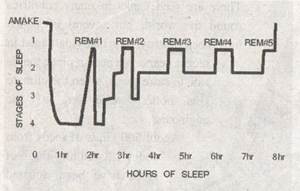题目内容
I lost my sight when I was four years old by falling off a box and landing on my head. Now I am thirty-two. I can vaguely(模糊地) 1 the brightness of sunshine and what color red is. It would be wonderful to see things again, 2 a disaster can do strange things to people. It happened to me the other day that I might not have come to love 3 as I do if I hadn’t been blind. I believe in life now. I am not sure that I would believe in it so 4 . I don’t mean that I would prefer to go without my eyes. I 5 mean that the loss of 6 made me enjoy more of 7 I have now.
Life asks us to keep making 8 to reality. If a person is able to get ready for anything changeable his world will 9 more meaningful. I became blind, but I was 10 . My parents and my teachers saw 11 in me-a potential(潜力) to live, you might call it-which I didn’t see, and they make me fight it out with blindness.
The hardest 12 I had to learn was to believe in myself. That was what I had to do at least. If I hadn’t been able to do that, I would become a chair rocker for the 13 of my life. When I say I believe in myself I am not talking about simply the kind of self-confidence that helps me down an unfamiliar staircase 14 . That is part of it. But I mean something bigger than that: A belief that I could deal with anything alone; that somewhere in the 15 there is a special place where I can make myself fit.
1. A. imagine B. find C. remember D. guess
2. A. but B. though C. so D. because
3. A. myself B. life C. eyes D. blindness
4. A. that B. therefore C. happily D. deeply
5. A. seldom B. just C. hardly D. always
6. A. them B. it C. blindness D. light
7. A. that B. what C. which D. where
8. A. moments B. encouragements C. improvements D. changes
9. A. become B. change C. look D. end
10. A. brave B. lucky C. sad D. wise
11. A. something B. everything C. nothing D. anything
12. A. problem B. experience C. difficulty D. lesson
13. A. rest B. whole C. need D. last
14. A. lonely B. alone C. self D. person
15. A. company B. group C. society (社会) D. family
小题1:C
小题1:A
小题1:B
小题1:D
小题1:B
小题1:A
小题1:B
小题1:D
小题1:A
小题1:B
小题1:A
小题1:D
小题1:A
小题1:B
小题1:C
小题1:考查动词辨析。作者眼睛失明,还能模糊记得阳光的明亮和红色。故选C。
小题1:考查并列连词。本句表示的是转折,though常放句尾。故选A。
小题1:根据下句I believe in life now可知,作者认识到自己对生活的热爱。故选B。
小题1:考查副词辨析。deeply“深深地”,作者深信生活。故选D。
小题1:考查副词。A“很少”;B“只是”;C“几乎不”;D“总是”。作者的意思只是说,失去双目让作者懂得珍惜所有。故选B。
小题1:联系上一句的eyes可知,这里指代的是眼睛,用them。故选A。
小题1:考查宾语从句。Of后的宾语从句缺少宾语,用what。故选B。
小题1:根据下句的changeable可知,作者强调的是改变。故用change。故选D。
小题1:考查动词辨析。A“变得”;B“改变”;C“看”;D“结束”。Become是系动词,后加形容词作表语。故选A。
小题1:根据下句可知,作者的父母和老师发觉了作者的潜能,说明作者是幸运的。故选B。
小题1:考查不定代词。作者的父母和老师在作者身上发现一些东西--生活的潜力。故选A。
小题1:考查固定短语。learn a lesson“得到教训”。故选D。
小题1:考查固定搭配。the rest of life“余下的生命”。故选A。
小题1:考查形容词辨析。Lonely“孤独的”;alone“单独的”。这里指作者自己一人下楼梯。故选B。
小题1:作者相信,在社会上,有适合作者的一个地方。故选C。

练习册系列答案
相关题目
